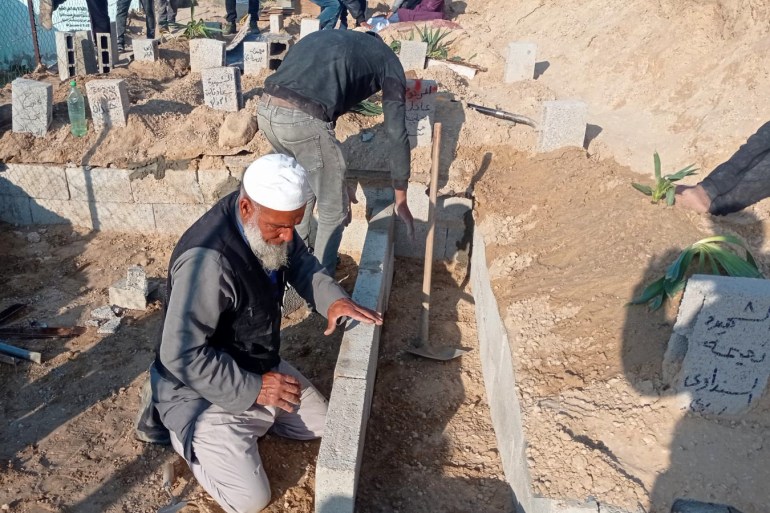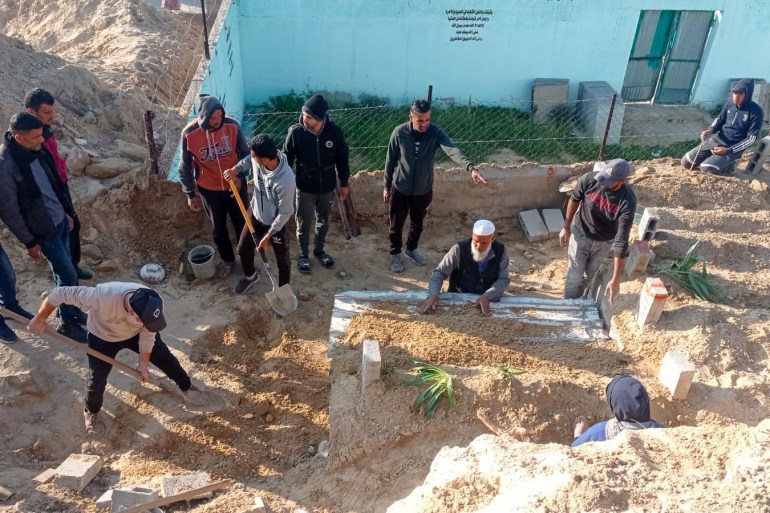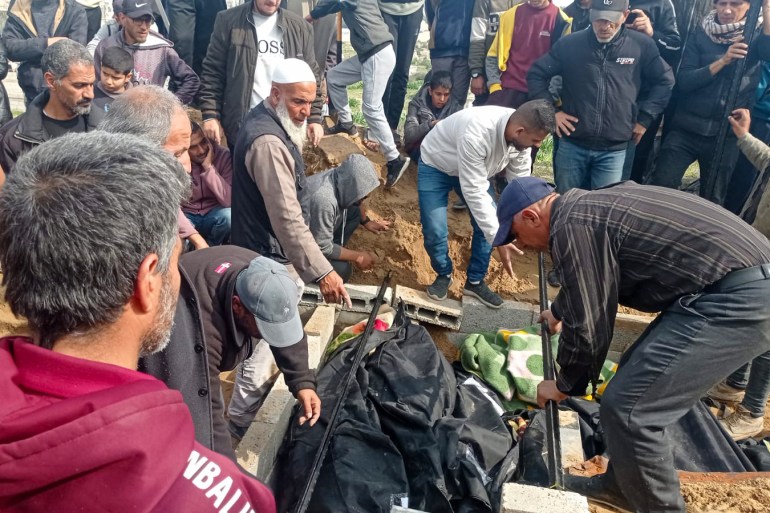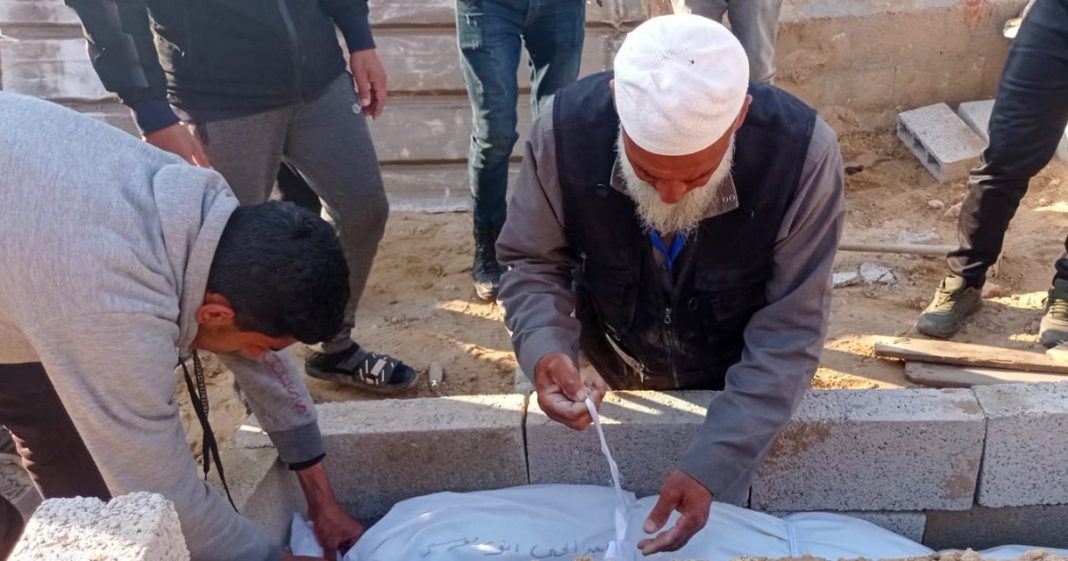Deir el-Balah, Gaza – Before October 7, Saadi Hassan Sulieman Baraka, nicknamed Abu Jawad, had a routine.
He would pray the dawn prayer, have dukkah and zaatar with olive oil for breakfast, and then head east of Deir el-Balah to tend to his palm and olive trees. No more.
The 64-year-old is an Islamic undertaker, a job he has done for decades before Israel’s war on Gaza broke out. Now, the Palestinian father of 10 and grandfather of 116 is working long hours, burying more people a day than he would ever have thought possible.
Tranquility lost
Abu Jawad is one of the first residents of Deir el-Balah refugee camp in central Gaza, where he lives in a small house with his wife and 104-year-old mother.

He is a simple, vibrant, generous man known as “Deir el-Balah’s Heartbeat”, and he feels the disruption of his tranquil life very deeply, mentally and physically.
“I’ve lost 30kg (66lb), I’m not able to sleep at night, or eat, after my burials. The images I see are … pure horror. They won’t leave my mind.”
“I’ve buried about 10 times more people during this war than I did across my entire 27 years as an undertaker. The least was 30 people and the most was 800. Since October 7, I’ve buried more than 17,000 people.
“Every day, the cemetery is full of people crying over their beloved’s graves or by their bodies as they wait to be buried,” Abu Jawad said.
“Now, my life is this,” Abu Jawad says. “I work at the cemetery from 6am to 6pm, sometimes longer. I prepare shrouds, build graves, lead funeral prayers, mourn, and bury.
“There are four displaced men from Khan Younis who help me. What we do is voluntary, we’ve been offered money, food, and aid, but we don’t want anything except our reward from God and mercy for the martyrs we bury daily.
“The fact that almost all of our funerals are mass is utterly heartbreaking; most of them included families wiped out. We prepare big family graves in the expectation of a massacre. We only have two cemeteries in Deir el-Balah; one is now completely full, and the other is running out of space.”
‘We are the dead’
On the day when a short ceasefire began in November, Abu Jawad remembers having to bury 800 people, mostly children.
“We collected them in pieces, their bodies so riddled with holes it was like Israeli snipers used them for target practice. Others were crushed like … like a boiled potato and many had huge facial burns.

“We couldn’t really tell one person’s body from the other, but we did our best. We made one big deep grave, probably 10 metres (30 feet) deep, and buried them together.
“Normally we can write the name of the deceased on their shroud, and their loved ones can come pray for them. But those 800 had no loved ones to visit them,” Abu Jawad chokes up at the painful memory.
He goes on to describe how he has to almost deliberately shut off his emotions so he can complete his daily tasks of providing comfort for families as he buries their loved ones.
“For me, those killed are still alive and we are the dead because we’re dying slowly. There’s no means of life here; no water, no food, no electricity, no peace, nothing at all. Is this a life?

“Nearly every day, I see someone who doesn’t leave their beloved’s grave. I leave and come back just to see them still sobbing for their deep loss.”
For a family to bring their dead to the cemetery is not an easy task. There have been numerous reports of people burying their dead in their yards because they could not venture out into the street with the body.
“It takes days, a week, weeks, for a family to bring in their loved ones to the cemetery. Sometimes it’s because there were no tools to get bodies out of the rubble of a destroyed home, sometimes it’s because they can’t find shrouds or anything else to wrap the bodies in.
“I’ve buried 67 of my family; the hardest was my cousins, who I was very close to. Their bodies were destroyed, they were in pieces. I didn’t recognise any of them.
“Despite the scale of loss and horror I see every day, I can’t stop and never will.
“Stop this genocide! We want a peaceful life. I want to leave and go home safely every day, not battling starvation and war at the same time.”







